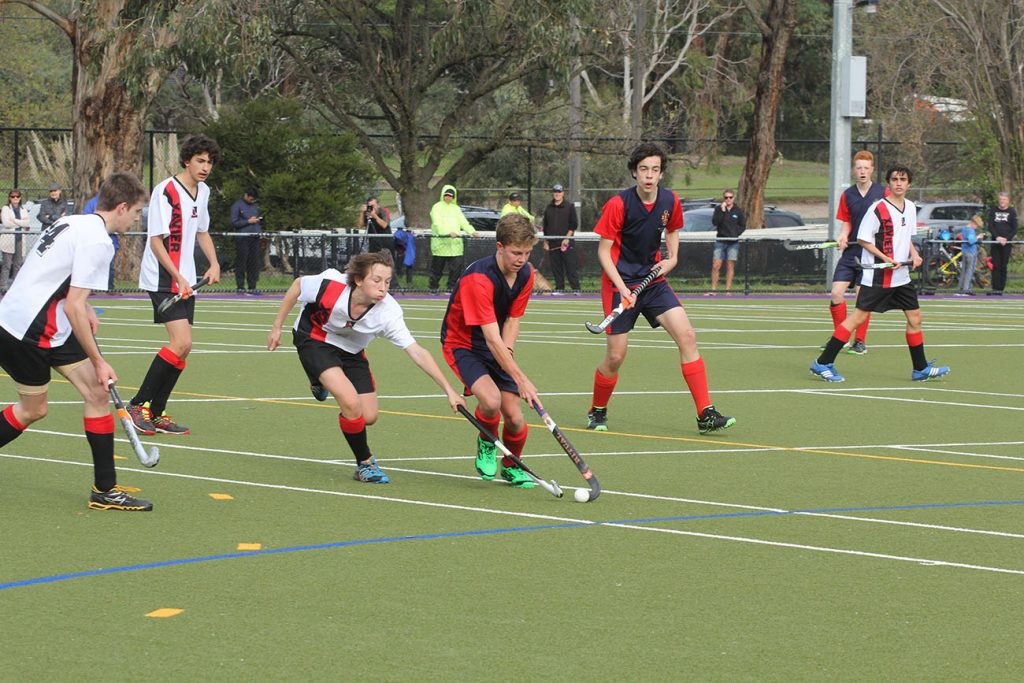Teaching games in school. Usually they have specialists to do that – and nothing else. If there are not enough specialists to go round, normal ‘classroom’ teachers spend a fraction of the week (large or small) doing the same thing.
The relationship between coach and players is not the same as between teacher and class. A teacher may have spent forty minutes teaching Maths to twenty-odd boys in the morning, and then turns to teaching hockey to the same twenty-odd for an hour or more in the afternoon. But the set-up is different.
It’s in the open air for a start. Fresher, often much colder or much hotter. All that space. The teacher/coach does not have the assistance of four walls to concentrate effort and attention. He often has to bellow, to give them a mental kick in the pants. This is particularly true when he is trying to teach positional play in a team game. Children are generally happy to follow a ball, but are not so good at working out what to do when the ball is nowhere near them. In that sense they are rather like a TV camera at a league match. The viewer often has little general view of the whole game, and it is a rare young player who has a grasp of the situation on the whole field when he is playing.
Secondly, if the coach joins in, as he used to be able to, for any of the reasons I have suggested, there is always the risk that he will make a mistake himself, and that is always good for a laugh. Maths teachers do not make many mistakes explaining Pythagoras` theorem, but games coaches cut splendid figures if they slip while attempting a tackle, or miss a simple interception, or get their favourite off break dispatched to the long-on boundary. A good general laugh is a splendid tonic to any situation. And, if he is to benefit from it, the coach had better join in.
Then there is the obvious – the fact that lessons are lessons, and games are games. So of course the air is lighter. Even if you are working them hard, they are usually willing to put their backs into it. And they tolerate all sorts of informal techniques on the part of the coach designed to extract more effort or concentration from them. If a teacher has built a good atmosphere, they will accept no end of pushing and driving, and the coach for his part will have to accept the response that that can bring – in the shape of a good grumble, or a sharp repartee. If the atmosphere is sound, he will rarely take offence at this, because he knows that the relationship between him and them has been hammered out over several weeks or months, in mud and dust and grazes and bruises and wind and rain and disappointments and triumphs. Both sides know where the boundaries of good taste lie, and as a general rule rarely cross them.
This in its turn provokes a more lively – well, camaraderie, if you like. They know you are the boss, but they know too that you and they are working together to make a decent set of players.
The quips can fly.
The best way to explain, and I hope justify, the healthy atmosphere that can be generated by this philosophy and approach is to give an example.
I was out on the field one afternoon with a group of lively fourteen-year-olds, playing hockey. Some of them were highly talented, and would play for the first eleven in a few years. They were also bright.
I had just made a mess of some movement, or been slow off the mark, or simply missed the ball or something, and somebody observed darkly that my advice was perhaps not quite as valuable as they had hitherto been led to believe.
Rising to the bait, I declaimed, loudly, to the whole field in general, in what I hoped were tones of mock censure, ‘I’ll have you know that I have been playing this game for over twenty years.’
Quick as a flash, back came the response, accompanied by a broad grin: ‘You must have taken up the game very late in life, sir.’
You might also like: How to handle misbehaving students


Recent Comments